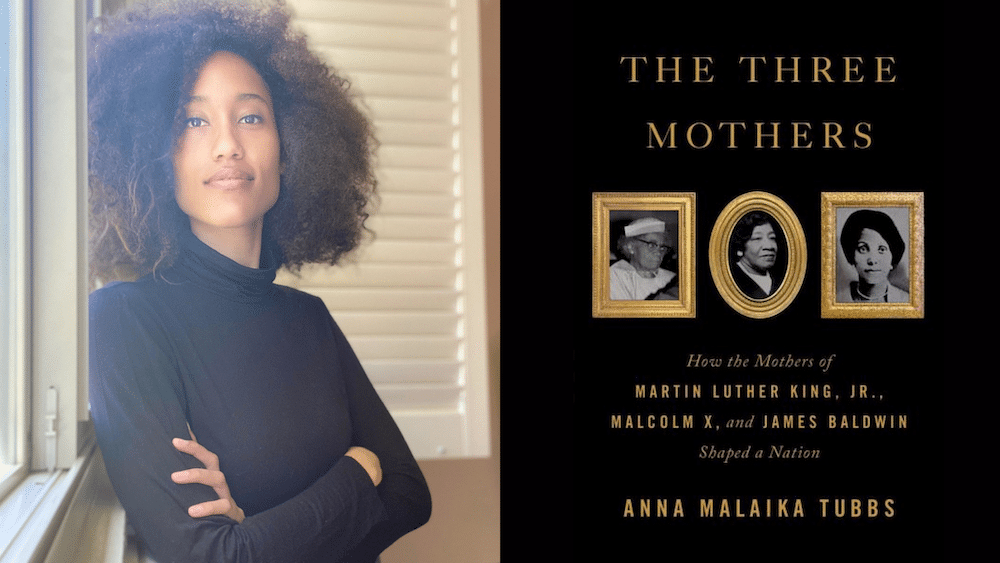
This month Women’s Foundation California is in conversation Anna Malakia Tubbs, Cambridge Ph.D.candidate in Sociology and a Bill and Melinda Gates Cambridge Scholar discussing her groundbreaking and book debut The Three Mothers.
Much has been written about James Baldwin, Martin Luther King Jr., and Malcolm X. But virtually nothing has been said about the extraordinary women who raised them: Berdis Baldwin, Alberta King, and Louise Little. In her new book, Anna’s honors these women and finally giving them the attention and credit, they deserve.
We’re inspired by Anna’s work and looking forward to growing our partnership with her in 2021.
What inspired you to write The Three Mothers? Black women continue to be the bedrock of social justice movements, how do these specific stories continue to shape current movements?
I have always been passionate about correcting the erasure of Black women, when I started my PhD I knew I wanted to bring attention to Black women who had been wrongfully forgotten. We often hear the saying that “behind every great man is a great woman,” a saying that really bothers me, because most likely in such cases that woman is right beside the man if not leading him. So I wanted to think about things differently and introduce the woman before the man. I believe mothers are some of the most under-appreciated and unseen people in society and I felt it was time to honor them with the attention and credit they deserve. With all of this in mind, I dove into researching mothers of famous Black men and when I came across Alberta, Berdis, and Louise stories that were filled with nuance, diversity, as well as similarities and intersections as a result of the closeness in their birthdays as well as their famous sons’ birthdays, I just knew I had to dive deeper and share their names with the world.
Their lives offer guidance and encouragement for Black women today, they show us different ways to be women, Black women, Black mothers, activists, educators, and much more. They remind us how difficult the world can be while also showing us ways to actively change it.
You’ve been an advocate for gender justice in Stockton with the State of the Women Report and the hiring of the city’s first Gender Justice Officer. Can you tell us why gender is an issue that you continue to organize around?
Gender plays a role in everything and most people do not pay enough attention to that simple fact. We cannot fix problems if we do not consider the intersectional nature of each person’s identity. For example, in the Report on the Status of Women in Stockton we found that many of Stockton’s residents were women of color, that many households were led by single mothers, and that many of those mothers were not making enough money to support their families. This attention made it clear that if any differences were going to be made to ensure a better future for the city, single mothers of color needed to be at the center of the work. In The Three Mothers I show how when we consider how being Black women informed the lives of Alberta King, Berdis Baldwin, and Louise Little we are better able to see why their sons were passionate about very particular issues facing the Black community. They were carrying forward lessons imparted to them by their mothers, people who faced the regime of Jim Crow as Black women with Black children. They believed in their and their children’s lives even when multiple forces told them they didn’t deserve to live. There is something special that happens when we focus on gender and the ways in which it intersects with our other identities, how this affects our treatment by society, and how this motivates our unique responses to such treatment.
This book focuses on forgotten histories, what does the future of feminist leadership look like to you?
The Three Mothers is, among other things, a reminder that Black women have always been leaders in movements for social change even when their leadership went unrecognized. Black women have pushed others to see the potential of the world through their eyes; seeing it as a place where they and the people they loved deserved dignity and respect, just like everyone else. In instructing others to join them in making this vision a reality, they have influenced the fabric of the nation in countless ways. When I think of the future of feminist leadership, I see this work continuing but I see it being recognized and celebrated. I hope for this change, one that highlights the importance of Black women, to allow the work to be, even if only a little bit, easier. If others are willing to finally listen to Black women, and women of color more generally, who have fought for what they believed in even without the credit and support they deserved, the work they have always been willing to do could grow to new heights and we could move closer to the world they envision where each and everyone of us is given the dignity and respect we have a right to.